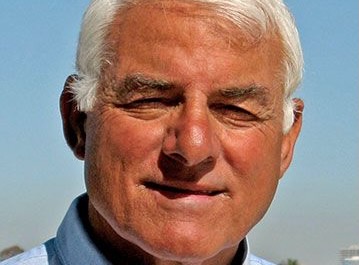Noin vuosikymmen sitten yksi aikakautemme vaikutusvaltaisimmista psykiatreista alkoi julkisesti varoittaa mielenterveyden holtittomasta medikalisoitumisesta. Psykiatria oli hänen mukaansa suistunut raiteiltaan ja hän osoitti syyttävällä sormella diagnoosijärjestelmän kehittämistapaa, sen eturistiriitoja ja lääketeollisuuden kykyä hyödyntää tilannetta. Vastaavan kritiikin voisi kuitata tavallisena alan sisäisenä nahisteluna, mutta kyseessä oli Allen Frances, samaisen diagnoosijärjestelmän pioneeri ja DSM-IV-version puheenjohtaja. Emeritusprofessori Francesilla on yllättävä viesti: ongelmia kiihdyttää psykiatrian omien erityisasiantuntijoiden lähes tarkistamaton valta päättää erityisalansa laajentamisesta.
Frances maalaa kirjassaan Saving Normal armottoman kuvan DSM-V-päivitykseen liittyneistä sotkuista ja osaamattomuudesta, eivätkä aiemmatkaan versiot näyttäydy ongelmattomina. Frances on esittänyt taloudellistakin ristiriitaa synnyttävän rahakkaan DSM-manuaalin siirtämistä kokonaan pois Amerikkalaisen Psykiatriyhdistyksen päätösvallasta. What’s Next in Mental Health? -podcastissa hän keskustelee Minduun Helenan kanssa alalla vallitsevista eturistiriidoista ja valta-asetelmista. Hän kertoo esimerkkejä säästelemättä DSM- ja ICD-diagnoosijärjestelmien ja hoitosuositusten kokoamista varjostavista käytännön sudenkuopista ja antaa näkemyksensä siitä, miten tilanne tulisi korjata.
Kuuntele jakso Spotifyssa
Kuuntele jakso Apple Podcastsissa
Kuuntele jakso Google Podcastsissa
Muista tilata What’s Next in Mental Health? omalla podcast-alustallasi niin huomaat aina uusimmat jaksot.
***
How the diagnostic system started to swell
About a decade ago, one of the most influential psychiatrists of our time, started speaking out against over-medicalization and vested interests corroding the psychiatric diagnostic system – a system he had helped pioneer. Professor Emeritus Allen Frances points to systemic biases with specialists pushing to expand their own speciality. Dr. Frances has protested that the pharmaceutical industry is capitalizing on this expansion and suggested that the exceptionally lucrative Diagnostic and Statistical Manual (DSM) be taken entirely out of the hands of the American Psychiatric Association. He also doesn’t see the World Health Organization’s corresponding system working any better.
In this episode, we discuss with Dr. Frances, how the field of mental health became so medicalized and how the two diagnostic systems are produced. We look at why specialists can be problematic evaluators when it comes to their own speciality and why a broader, less vested set of shoulders can be more appropriate for setting diagnostic criteria and treatment guidelines.
Allen Frances chaired the task force that produced the fourth edition of the DSM (DSM-IV) and is Professor Emeritus at the Duke University School of Medicine where he chaired its department of Psychiatry and Behavioral Sciences. He is the author of the book Saving Normal: An Insider’s Revolt against Out-of-Control Psychiatric Diagnosis, DSM-5, Big Pharma, and the Medicalization of Ordinary Life.
Timestamps:
0:00 Experts’ and Pharma’s interests in medicalization
7:30 Creating diagnostic systems and APA’s DSM publishing interests
9:54 Power balance between specialists vs. primary care
13:31 Compensating treatment and therapy before or after diagnosis?
17:00 Replacing APA as institution producing the diagnostic system
20:25 Role of DSM, symptoms and the quest for biological understanding
28:40 Becoming a public critic and witnessing the lack of progress for the severely ill
Open on e.g. Spotify, Apple Podcasts or Google Podcasts.
Related episodes on What’s Next in Mental Health?:
The Elephant in the Clinic: The DSM has Fallen Behind. Here is How Psychiatric Diagnosis Might Work in the Future. (with Dr. Colin DeYoung)
Should We Stop Prescribing Antidepressants for Depression? (with Prof. Joanna Moncrieff)

